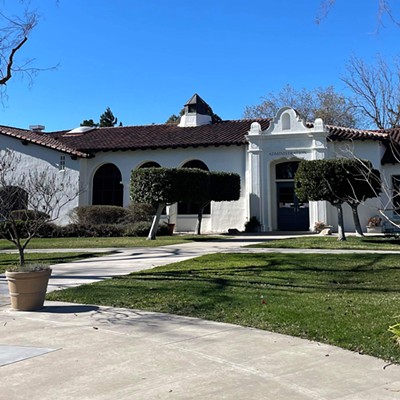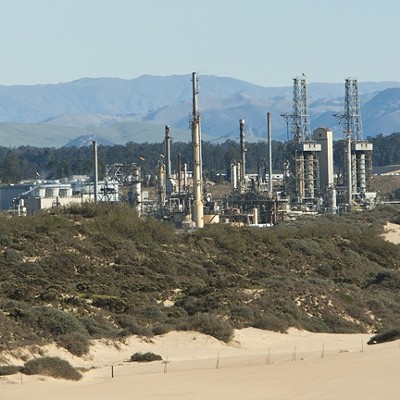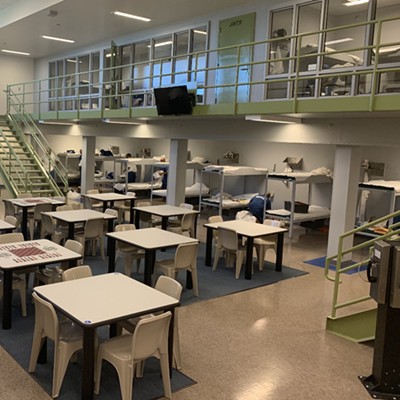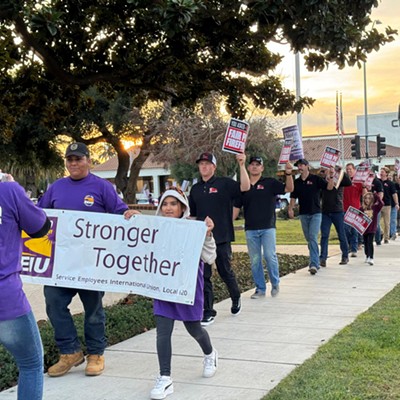Venoco Inc. inked an 18-month lease extension from the Santa Barbara County Board of Supervisors on March 21 to continue transporting oil in submerged pipelines offshore of Carpinteria. It’s the company’s second such extension since it began seeking a 25-year lease renewal from the county in September 2015.
The supervisors voted unanimously to continue Venoco’s use of two pipelines to transport oil drilled offshore from Platforms Gail and Grace in federal waters of the Outer Continental Shelf to Ellwood Pipeline’s onshore Carpinteria Oil and Gas Facility. Meanwhile, the county will develop an environmental impact report (EIR) for the company’s proposed long-term lease.
The item slipped through the supervisors’ deliberation fairly quickly, sparking only one question from 5th District Supervisor Steve Lavagnino.
“We’re talking about going another 25 years,” Lavagnino said of the pipelines in question, which have been in operation since 1965. “Do they just last as long as we’re inspecting them routinely?”
Peter Cantle, of the Energy and Minerals Department, said yes, that would be “essentially correct.”
“A pipeline like that can last for a long, long time,” Cantle said.
Lavagnino then moved to vote in favor of county staff’s recommendation to approve the lease amendment, extending operations for another year and a half. Though 4th District Supervisor Peter Adam was absent for the vote, the other supervisors passed the motion unanimously.
“I don’t think there was too much discussion on this one because it’s just an 18-month extension while they’re getting the EIR done,” Jefferson Litten, chief of staff for 3rd District Supervisor Joan Hartmann, told the Sun.
Supervisor Das Williams, who represents the county’s 1st District, said in an emailed statement to the Sun that the extension was necessary in order to fully deliberate the potential impacts of renewing Venoco’s lease for another quarter-century.
“We are still in negotiations over a potential long-term lease, but we feel an EIR is necessary in order to ensure there is no harm done to the environment and the community,” Williams wrote. “We are willing to extend the short-term lease in order for a focused EIR to be completed.”
Despite pushback from environmental activists against offshore oil and gas drilling, oil companies operating offshore in the Santa Barbara Channel aren’t showing signs of clearing out. Venoco’s proposed long-term lease renewal, for example, comes after the company’s attempt in late 2016 to expand the boundaries of its lease to drill off of Platform Holly in the South Ellwood Oil Field—the only oil-drilling platform in California state waters.
As leverage for the proposed boundary expansion, Venoco offered to close its facilities in 25 years, guaranteeing a permanent quitclaim of all its leases in the South Ellwood Oil Field and in a separate oil field offshore of Carpinteria.
Linda Krop, chief counsel for the Environmental Defense Center, told the Sun in a previous interview that she didn’t believe the 25-year end date was a reliable offer.
“All they have to do is come in at the end of 25 years and ask for an extension,” Krop said. “We don’t believe that that’s a guarantee.”
On Feb. 9, the State Lands Commission essentially put the brakes on the proposed boundary expansion, with Lt. Gov. Gavin Newsom declaring, “That project’s dead.” Now, Venoco is pushing to move forward with its operations in federal waters.
Through Venoco’s offshore operations are primarily in South County, the company’s economic impacts are felt countywide. For example, Venoco paid more than $3 million in property taxes to the country in the 2015-16 fiscal year.
The county has a say over Venoco’s use of the pipelines in question because they run through county property, but the operations themselves in the Outer Continental Shelf fall under federal jurisdiction. On that level, U.S. Rep. Salud Carbajal (D-Santa Barbara) is fighting to end new oil and gas drilling leases in federal waters off California’s shore.
Carbajal introduced the Clean Coast Act, which would do just that, in late January. The bill—which moved to the Subcommittee on Energy and Mineral Resources on Feb. 10—aims “to permanently prohibit oil and gas leasing off the coast of the state of California.”
If implemented, the Clean Coast Act would prohibit new leases in the Outer Continental Shelf, potentially halting Venoco’s pursuit of a long-term lease.
“Keep in mind when you consider the threat of the current offshore oil industry on our local economy, on our tourism, on our environment,” Carbajal told the Sun in a previous interview.
Even so, critics of the Clean Coast Act—such as Andy Caldwell, of the Coalition of Labor, Agriculture, and Business—say Carbajal’s bill doesn’t stand a chance in Congress anyway.
“On a practical level, it’s dead on arrival in a Trump administration,” Caldwell told the Sun in a previous interview.
Meanwhile, Venoco’s lease extension is approved through Sept. 25, 2018, and county staff estimates an EIR will take about 14 months to complete. Venoco will foot the bill for the $95,000 EIR process, and once the report is finished it will open for public input, review, and comment.
Staff Writer Brenna Swanston can be reached at [email protected].









